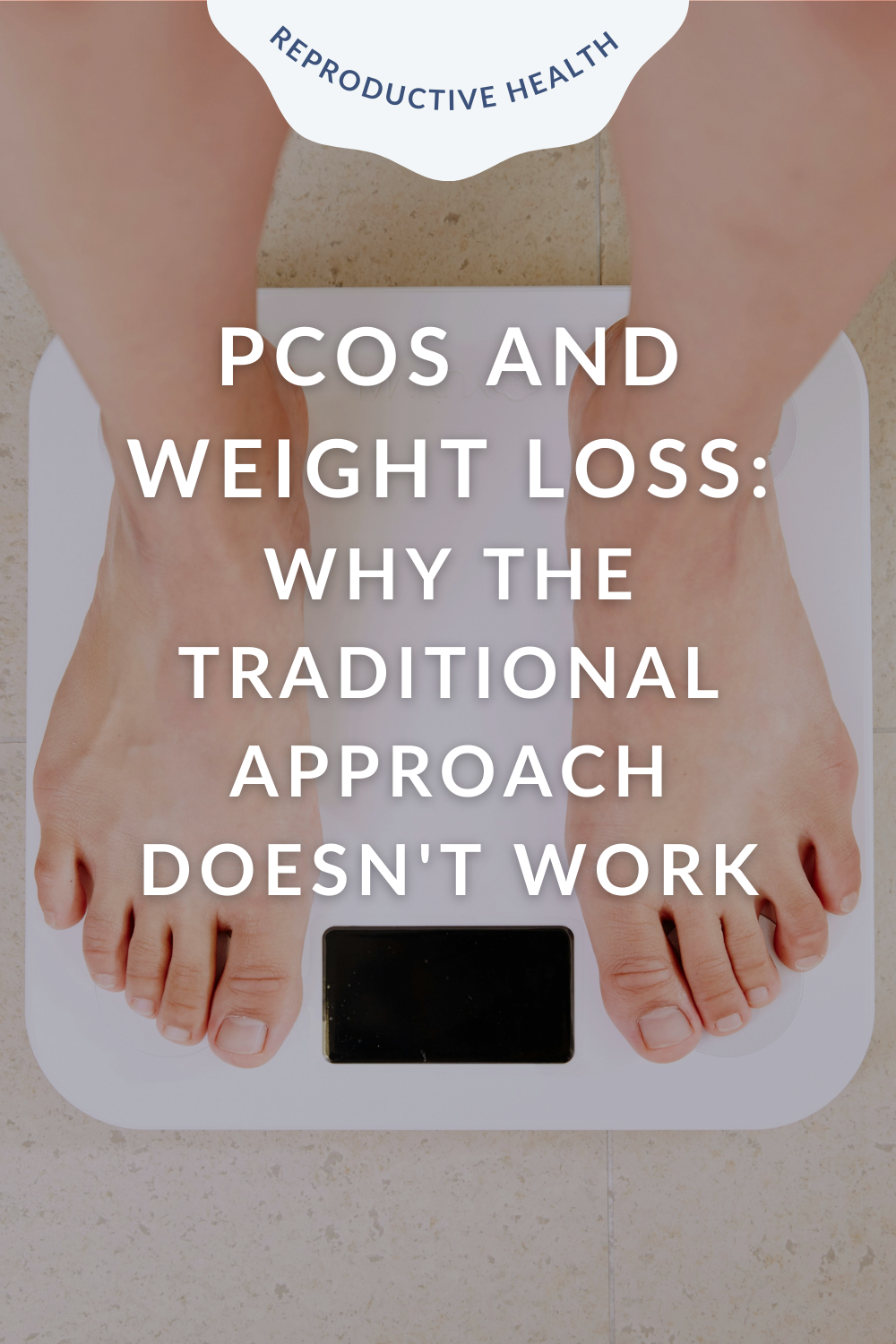How to Choose a Protein Powder
Protein powders have hit the nutrition world by storm. It’s quickly become a staple, bringing in a whole lot of convenience and adaptability when it comes to eating this macronutrient.
We’re all about a food-based approach to eating, but there are times where a protein supplement can fill the gap.
But, with countless options and new products promising to be the “best”, picking a protein powder can feel overwhelming. Analysis paralysis is a real thing!
Today, we’re giving you the full breakdown on protein powders - how they can come in handy, different types, and how to choose the best one for your unique life.
Do You Need a Protein Powder?
In short, no - you don’t ever need a certain health product, singular food or supplement to be healthy. But, protein powders can be a convenient way to fill a nutritional gap for those with unique needs or considerations. This includes:
Older adults with higher protein needs to prevent muscle wasting (aka sarcopenia). Appetites tend to decline with age, so supplements like protein powders can help ensure they meet daily protein requirements to maintain muscle mass, weight and immunity.
People with swallowing problems (aka dysphagia) that can be caused by GERD, inflammation of esophagus, Alzheimer’s disease, cancer or stroke. Liquid or soft-textured meals (like protein powder) reduces risk for choking!
People with low appetite - this could be due to stress, illness, medications, eating disorders and more. However, despite lack of hunger, protein is an essential macronutrient and powder is a low-barrier way to consume it.
Very active individuals, particularly if you do resistance training. Protein after exercise helps with muscle repair and growth. Of course, this could be from food, but keeping protein powder for busy days can also do the trick. Check out my Five Step Smoothie Formula for clear steps to build a balanced smoothie.
Keep in mind that variety is a tenet of nutrition - so ideally, a scoop of protein powder is one of many sources of protein in your day!
Animal Based Protein Powders
Whey Protein
Sourced from milk, whey protein is the most easily absorbed and has all nine essential amino acids. Its fast absorption rate makes it optimal for post-workout recovery. A review of 18 studies also found a link between increased whey protein intake and reduced blood pressure.
You’ll likely notice two distinct types of whey - isolate and concentrate. Whey isolate undergoes more filtration, yielding a higher protein content, with 1 scoop providing about 23-25g of protein. It’s also very low in lactose, making it suitable for people with intolerances.
On the flip side, 1 scoop of whey concentrate has about 20-22g of protein, plus it has a some carbs and fats. Taste-wise, it’s usually creamier, richer in flavour and comes with a friendlier price tag.
Keep in mind that in the overall context of your day, 2-5g of protein difference is really, really small and inconsequential. So the choice ultimately comes down to your tolerance for lactose, taste preferences and budget.
Casein Protein
Casein also comes from milk but is absorbed at a slower pace, making it a good evening snack. This study of 30 men suggests that casein’s slow absorption allows for a more gradual release of amino acids (the building blocks of protein) throughout the night, helping with muscle repair and growth during sleep.
Collagen Protein
Sourced from skin, bones, and connective tissues of animals, research suggests collagen offers benefits like supporting skin, hair, and joint health. A scoop of collagen protein powder has lower amounts of protein than whey and casein. However, it remains a popular choice amongst people who want a protein boost with some added benefits.
For collagen protein, my recommended brand is Organika’s Enhanced Collagen Protein- use THEGOODLIFEDIETITIAN25 for 25% off!
Plant Based Protein Powders
Soy Protein
Think of soy as “milk’s twin”. It’s a complete protein source with all essential amino acids and is highly absorbed. Several studies have concluded that eating 25g of soy protein daily is a safe and effective way to help lower LDL-cholesterol, and may provide modest relief from menopause symptoms like night sweats and hot flashes.
Pea Protein
Made from yellow peas, pea protein is a Low FODMAP powder known for its easy digestibility, making it a suitable option for people with food intolerances. It also contains all nine essential amino acids and is one of the more budget-friendly protein powders.
Rice Protein
Similar to pea protein, rice protein is Low FODMAP and tends to be easy on the gut. It doesn’t have all essential amino acids. But that doesn’t matter in the grand scheme of things, if you’re having other protein sources throughout the day.
Hemp Protein
Made from grinding hemp seeds, it’s a popular choice due to its omega-3 content, in addition to being a complete protein. It has a pleasant nutty flavour.
How to Choose the Right Protein Powder
Vegan Protein Powders
When choosing a vegan protein powder, go for one that’s most digestible and affordable for you. You’ll often come across mixed blends that have a few protein sources on their ingredients list (such as pea and brown rice blend) - that’s a great option for good absorption and a complete amino acid profile.
However, don’t fret too much about choosing a powder with all nine essential amino acids. There’s a common misunderstanding that you must eat all nine essential amino acids at each meal - and that’s simply not necessary. So long as you’re eating 3-4 different sources of protein throughout the day (nuts, seeds, whole grains, tofu, pulses), you’re covered for amino acids.
Taste-wise, vegan protein powders tend to be grainier, but that’s hard to avoid since the powder basically comes from ground-up plant foods.
Dairy-Free Protein Powders
If you're looking for a dairy-free option, read the ingredient labels carefully to scan for dairy components. These are ingredients that contain dairy:
Whey, whey protein concentrate, whey protein isolate
Casein, calcium caseinate, sodium caseinate
Lactose
Milk powder, milk solids, milk by-product
Milk protein isolate
Non-fat dry milk
Calcium caseinate, sodium caseinate
Low-FODMAP Protein Powders
If you have irritable bowel syndrome (IBS), choosing a low-FODMAP protein powder can aid in avoiding digestive discomfort. Some manufacturers now include labels like "Low FODMAP" or "FODMAP-friendly."
Scan the ingredient list to flag and avoid high-FODMAP ingredients like whey protein concentrate, inulin, and artificial sweeteners such as sorbitol. Instead, opt for powders containing rice, pea, or hemp protein sources, and natural Low FODMAP sweeteners like stevia or monk fruit.
Considerations: Sugar and Sweeteners
Building awareness around added sugar sources is part of food literacy. No need to fear added sugars, but it’s good to know where they’re coming from and make informed decisions based on that knowledge!
Common added sugars in protein powders include brown rice syrup, molasses, honey, and high-fructose corn syrup. These increase blood sugars.
Sweeteners like stevia and monk fruit extract are also commonly used. These do not increase blood sugars.
Finally, there’s sugar alcohols like sorbitol and mannitol. They do not increase blood sugars. However, they can cause digestive distress for people with IBS as they pull water into the intestinal system.
Safety Considerations
Look for Third-Party Testing
Protein powders are considered dietary supplements, meaning they are exempt from strict regulations by health authorities like Health Canada and the FDA. To make sure you are choosing a high-quality and safe product, look for products that have undergone Third Party Testing (TPT). This is an optional, but very important quality assessment that manufacturers can choose to. It involves unbiased testing of products in labs, verifying label claims, ingredient purity, and the absence of contaminants. TPT holds greater significance for professional athletes who need to avoid forbidden substances, however, so it's not something you need to worry too much about if you're not in that category!
When ensuring the safety of a supplement, NSF Sport, Labdoor and Informed Choice are my go-to’s.
Be Wary of Proprietary Blend
Some protein powders contain proprietary blends, mixtures of ingredients where the exact amounts of each aren't revealed. This lack of transparency can make it hard to know what you're actually getting, and can impact how well the product works, how safe it is, and whether you're getting good value. To make smart choices that match your health and fitness goals, choose protein powders that disclose the amounts of individual ingredients.
The Takeaway
Protein powders can be a great vehicle to meet your macronutrient needs - especially if you have swallowing difficulty, are on-the-go, struggle with low appetite or exercise vigorously. Or, if you just love the taste of a smoothie - protein powders are an easy way to ensure the meal is filling and satiating.
To choose the right protein powder for you, consider your dietary preferences, nutritional requirements, food intolerances, taste preferences and budget. Always prioritize quality, safety, and transparency in the products you select. By understanding the practical applications, different types, and various considerations outlined in this guide, you'll be well-equipped to make an informed decision that aligns with your individual needs and preferences!
Hi! I’m Trista
A Registered Dietitian and reproductive health expert. I’m here to help you gain confidence to overcome your Polycystic Ovary Syndrome and digestive health woes, while bettering your relationship with food.
CATEGORIES
References
American Heart Association. (2000). A variety of clinical trials have shown that the, greater in people with hypercholesterolemia. Circulation, 102(20), 2555. https://www.ahajournals.org/doi/full/10.1161/01.cir.102.20.2555
Choi FD, Sung CT, Juhasz ML, Mesinkovsk NA. Oral Collagen Supplementation: A Systematic Review of Dermatological Applications. J Drugs Dermatol. 2019 Jan 1;18(1):9-16. PMID: 30681787.
Khatri M, Naughton RJ, Clifford T, Harper LD, Corr L. The effects of collagen peptide supplementation on body composition, collagen synthesis, and recovery from joint injury and exercise: a systematic review. Amino Acids. 2021 Oct;53(10):1493-1506. doi: 10.1007/s00726-021-03072-x. Epub 2021 Sep 7. PMID: 34491424; PMCID: PMC8521576.
North American Menopause Society. The role of soy isoflavones in menopausal health: report of The North American Menopause Society/Wulf H. Utian Translational Science Symposium in Chicago, IL (October 2010). Menopause. 2011 Jul;18(7):732-53. doi: 10.1097/gme.0b013e31821fc8e0. PMID: 21685820.
Transparent Labs. (n.d.). The truth about supplement proprietary blends. Transparent Labs Blog. https://www.transparentlabs.com/blogs/all/supplement-proprietary-blends
Trommelen J, Kouw IWK, Holwerda AM, Snijders T, Halson SL, Rollo I, Verdijk LB, van Loon LJC. Presleep dietary protein-derived amino acids are incorporated in myofibrillar protein during postexercise overnight recovery. Am J Physiol Endocrinol Metab. 2018 May 1;314(5):E457-E467. doi: 10.1152/ajpendo.00273.2016. Epub 2017 May 23. PMID: 28536184.
Vajdi M, Musazadeh V, Zareei M, Adeli S, Karimi A, Hojjati A, Darzi M, Shoorei H, Abbasalizad Farhangi M. The effects of whey protein on blood pressure: A systematic review and dose-response meta-analysis of randomized controlled trials. Nutr Metab Cardiovasc Dis. 2023 Sep;33(9):1633-1646. doi: 10.1016/j.numecd.2023.05.025. Epub 2023 May 26. PMID: 37419751.
The amount of protein you need depends on many factors like your age, health status, life stage, medical history, activity level and more.
Before making protein powders a part of your routine, speak with a Registered Dietitian to learn how it fits into your day, and how you can reach your health goals.
Our 1-on-1 Nutrition Coaching Programs to learn how to ditch diets and build self-loving, healthy and sustainable habits for a good life - whether you’re managing hormone imbalances, IBS, or a chronic condition - we’re here to help.
Receive personalized nutrition guidance, personalized meal plans and unlimited messaging support to create lasting change!














